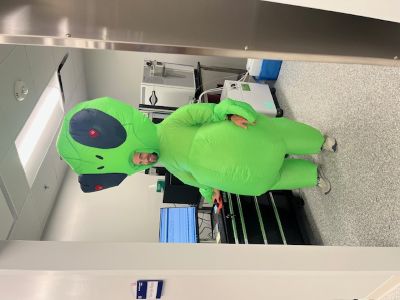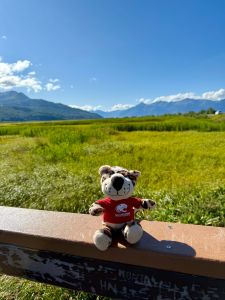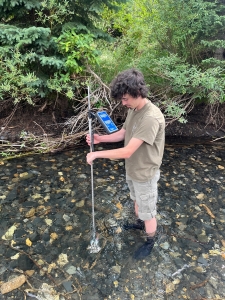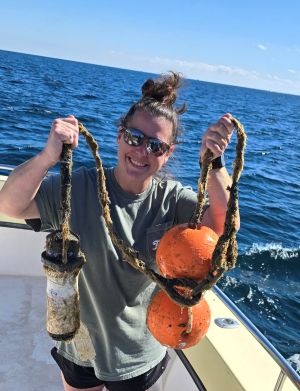News & Events
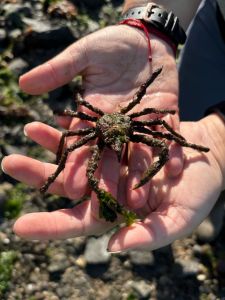
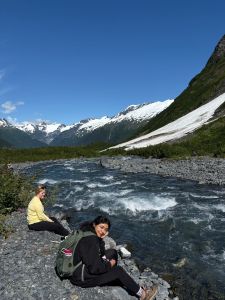
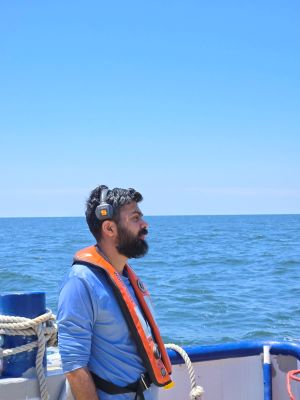
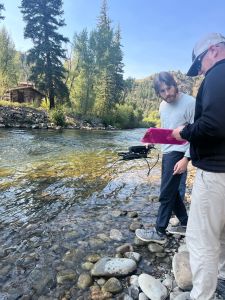
We Explore. We investigate. We Find Answers.
Teaching the next generation of marine and environmental scientists is our mission. Through experiential learning, our students gain knowledge. Find out what our students are doing and join us in celebrating their successes.
Latest News
Holiday Break Announcement
Break Dates:
Thursday, Dec. 19-Monday, Jan. 5
Relax, recharge, and enjoy a well‑deserved pause from school. Whether you’re spending time with friends, catching up on rest, or just taking it easy, we hope you make the most of it.
We wish all of our students a safe and restful holiday season!
Classes will resume on Monday, January 12, 2026
Campus Wide Power Outage
6:00 am - 7:00 pm
Holidays for Staff and Administration
Back-up Date for Campus Wide Power Outage
6:00 a.m.-7:00 pm
Faculty, Staff & Admin return to work
Classes begin
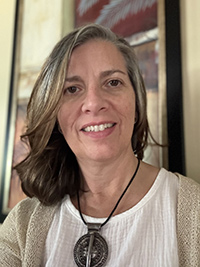
We proudly congratulate Dr. Ruth Carmichael, selected as the 2026 Plenary Speaker for the Association of Southeastern Biologists (ASB). This prestigious recognition is a testament to her outstanding contributions and leadership in the field.
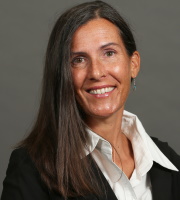 We proudly congratulate Dr. Amy Sprinkle on receiving the Teaching Excellence Award at the College of Arts and Sciences 39th Annual Dean's Lecture and Faculty Awards
Ceremony. This honor reflects her unwavering dedication to student success and her
outstanding contributions to academic excellence.
We proudly congratulate Dr. Amy Sprinkle on receiving the Teaching Excellence Award at the College of Arts and Sciences 39th Annual Dean's Lecture and Faculty Awards
Ceremony. This honor reflects her unwavering dedication to student success and her
outstanding contributions to academic excellence.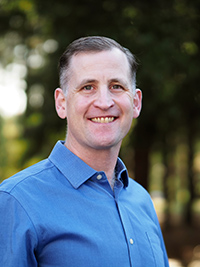 We proudly congratulate Dr. Jeffrey Krause, the 2025 recipient of the College of Arts and Sciences Excellence in Graduate Student Mentoring Award. This distinguished honor celebrates Dr. Krause’s exceptional commitment to guiding
and supporting graduate students, fostering academic growth, and inspiring future
scholars.
We proudly congratulate Dr. Jeffrey Krause, the 2025 recipient of the College of Arts and Sciences Excellence in Graduate Student Mentoring Award. This distinguished honor celebrates Dr. Krause’s exceptional commitment to guiding
and supporting graduate students, fostering academic growth, and inspiring future
scholars.
 Congratulations to Dr. Gabriel de Oliveira on Three October Publications!
Congratulations to Dr. Gabriel de Oliveira on Three October Publications!We proudly celebrate Dr. Gabriel de Oliveira’s outstanding achievement of publishing three scholarly works during the month of October. This accomplishment reflects a continued commitment to research excellence and academic impact.
Published Works:
- Avaliação da vulnerabilidade hídrica na região do rio São Francisco. Brazilian Journal of Physical Geography. 18(6):4202-4219
- Influência Da Mudança De Uso Do Solo No Saldo De Radiação A Superfície No Estado De Rondônia A Partir De Produtos MODIS. Brazilian Journal of Physical Geography.18(6):4700-4715
- Assessment of landslide susceptibility triggered by precipitation in the Metropolitan Region of Recife, Brazil. Journal of South American Earth Sciences. 168:105812
Join the Carmichael Lab!
The Carmichael Lab at the Dauphin Island Sea Lab (DISL) is looking for volunteers wanting research lab experience!
If you are interested in gaining experience for graduate school or your future career in a fun, dynamic lab, here's your chance!
Requirements:
- Available to work 4-8 hours per week
- Reliable transportation to Dauphin Island Sea Lab
- Positive and hardworking attitude
Contact: ALMMSN@DISL.ORG
Dr. Brian Dzwonkowski’s research team has installed a new wave buoy ~ 10 miles south of Dauphin Island with the hope that it will become a permanent part of Alabama Real-Time coastal Ocean Observing System (ARCOS) network.
Know Before You Go! The data that the new buoy collects can be used by boaters and beach-goers to help safely plan for activities at Alabama’s beaches and in the coastal ocean.
Data includes:
- Hourly wave data
- Height
- Direction
- Sea surface temperature
- Atmospheric pressure
Support for this buoy was provided by the Gulf of America Coastal Ocean Observing System (GCOOS) as part of the Supporting Coastal Resilience with Inflation Reduction Act supplemental NOAA-IOOS award with additional personnel support from the National Science Foundation through the Biological Opportunities And Training in Sciences(BOATS) internship program at Dauphin Island Sea Lab.

